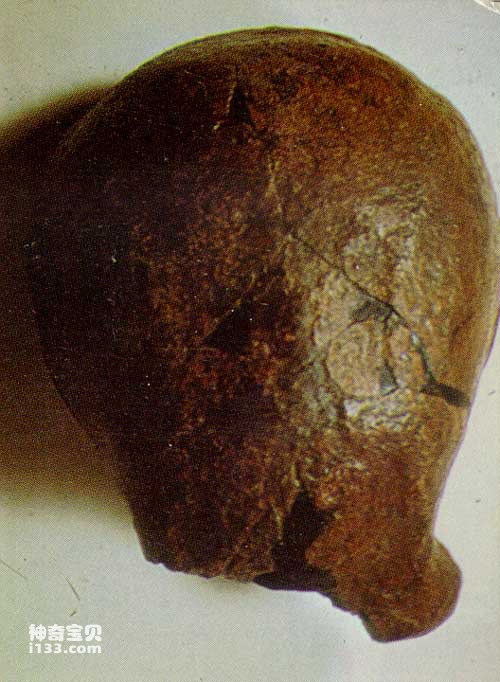Influenced by the idea of evolution, especially by the German Darwinist Haeckel, the young Dutch doctor Dubois firmly believed that humans would be found in Indonesia (referred to as Indonesia, which was a Dutch colony at the time, called the East Indies). Distant ancestors, because it is located in the tropics and is rich in orangutans and gibbons, our closest living relatives. After publicly announcing his intention to go to Indonesia to find the "missing link" between humans and apes, Dubois set out for Indonesia in the late 1880s. He hired 50 prisoners and searched hard along the Solo River on Java Island. Finally, one day in 1890, he found an ancient human mandible in a place called Kaidenblubs. In 1891, he found a skull with many ape characteristics in the village of Trinil; the next year, he found a thigh bone similar to that of modern humans in the same place, and its shape indicated the owner of the thigh bone. Already able to walk upright on two legs. Dubois believed that the skull and thigh bones discovered successively should actually belong to the same individual, and it must be the ancestor of modern humans. So he published a paper in 1894 and named these fossils Homo erectus, and later generations often referred to these ancient animals as Homo erectus. Humans are commonly known as Javanese apes.

Javanese man skull
This discovery immediately aroused heated debate after it was announced. Some people suspect that there is something wrong with the geological age of these fossils. Some people do not believe that a thigh bone like a modern human would fit together with the skull of an elephant ape, so they think that these fossils are just a kind of giant gibbon; some even think that these materials They are just the remains of idiots or deformed people among modern people. These doubts and controversies buried Dubois' discovery for more than 30 years. It was not until 1928, when Mr. Pei Wenzhong, a famous Chinese paleontologist, paleoanthropologist and prehistoric archaeologist, discovered the first skull of Peking Man in Zhoukoudian, a suburb of Beijing, that the paleoanthropological community re-established Javanese Man as the first Discovered status of Homo erectus.

By the riverside
We created this article in conjunction with AI technology, then made sure it was fact-checked and edited by a Animals Top editor.